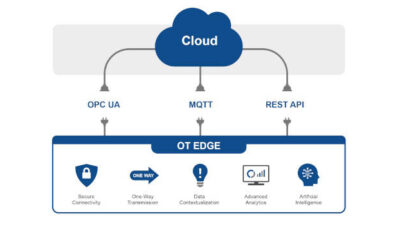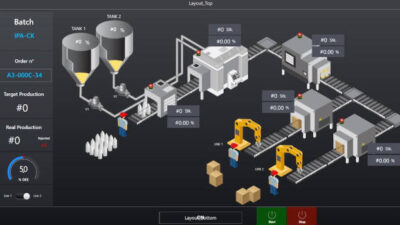Using Microsoft's Hyper-V software, Nissan virtualized most servers, reduced number of manufacturing operations servers from 159 to 28, decreased energy usage by 34%, simplified systems at each plant, and reduced physical space requirements.
|
Microsoft says it has worked with the automotive industry for more than a decade . |
Smyrna, TN – Nissan North America Inc. (NNA) reduced the number of computer servers for its manufacturing operations from 159 to 28 at its Smyrna and Decherd, TN, plants. The consolidation increased NNA’s production efficiency and has cut energy usage by 34 percent, ultimately helping to create a "greener" Nissan, Microsoft reported on Aug. 19.
"Over the past two to three years, our server population had exploded to almost 160 and was continuing to grow," said Phil D’Antonio, manager of Conveyors and Controls Engineering, NNA. "It was extremely difficult to manage and it consumed numerous labor hours that could be used on other initiatives that add value to our operation."
Nissan conducted a thorough inventory of its servers and defined a refresh strategy for its system infrastructure. NNA used Microsoft Hyper-V software, which allows multiple virtual machines to operate on one physical machine. The virtualization technology helped to create a smaller and less complex system at the Smyrna and Decherd plants in less than 12 months. The smaller system improved manageability and reduced the amount of space and energy needed to operate, which also helped Nissan reduce its impact on the environment.
"The Hyper-V technology was designed to create a more efficient system and help reduce environmental impact," said David Graff, U.S. automotive industry solutions director at Microsoft. "That has helped Nissan achieve its main objectives."
D’Antonio said that as a result of the refresh, Nissan has realized the following benefits:
• Increased reliability with minimal system downtime;
• Reduced expenses for running the system;
• Standard disaster recovery plan;
• An efficient setup for redundancy;
• Improved manageability;
• Compatibility with new systems;
• Smaller footprint to house fewer servers; and
• Reduced energy costs by 34 percent.
"We were able to reduce the growing cost associated with a sprawling system as well as cut energy usage by a third," D’Antonio said. "As an Energy Star partner, Nissan is committed to improving the energy efficiency of our business and protecting the environment for future generations."
Nissan’s Smyrna plant has seen its energy efficiency improve by as much as 32 percent since it began aggressively pursuing environmental initiatives in 2005. These energy-saving practices are currently saving the company more than $3.5 million per year.
Nissan Green Program 2010 aims to reduce CO2 and other emissions and increase recycling.
Microsoft Automotive and Industrial Equipment vertical works with industry partners to develop solutions based on Microsoft technologies that enable original equipment manufacturers (OEMs), suppliers and customers to improve efficiency, effectiveness and knowledge across the business.
Also read, from MBT: Vendor alliances: Sun and Microsoft open center to foster working relationships between products
– Edited by Mark T. Hoske, electronic products editor, MBT www.mbtmag.com



